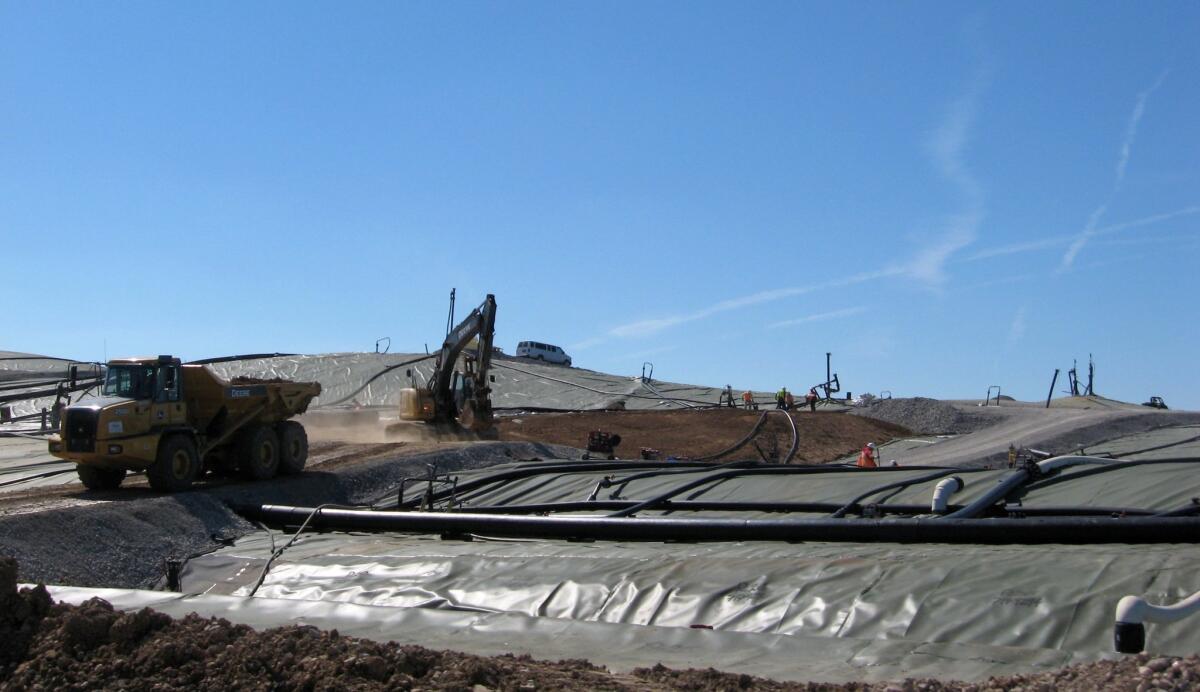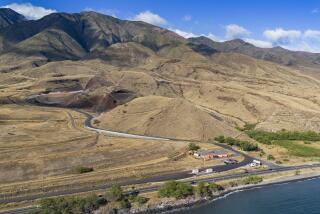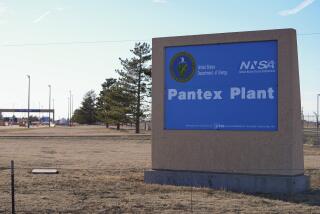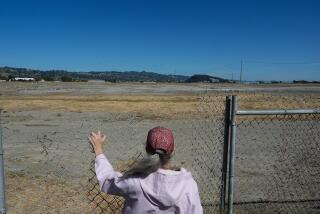EPA orders barrier installed to protect nuclear waste from underground fire near St. Louis

Nuclear waste dating to the Manhattan Project was dumped in 1973 at the West Lake Landfill in Bridgeton, Mo. An underground fire has been smoldering for years and is now within 1,200 feet of the landfill, seen here in a file photograph.
Reporting from St. Louis — The U.S. Environmental Protection Agency has ordered the installation of an isolation barrier to make sure that an underground fire does not reach buried nuclear waste at a suburban St. Louis landfill.
Mark Hague, EPA regional administrator, who announced the move Thursday, said the plan for West Lake Landfill in Bridgeton also calls for additional engineering steps, such as cooling loops. The barrier will consist of an underground wall.
Nuclear waste dating to the Manhattan Project was dumped at West Lake in 1973. An underground fire has been smoldering for years and is now within 1,200 feet.
The work will be paid for by Republic Services, owner of both landfills. A spokesman for Republic Services said the company is ready to proceed with installation of the barrier.
Join the conversation on Facebook >>
The company insists there is no risk the fire will reach the nuclear material, but environmentalists disagree.
Ed Smith of the Missouri Coalition for the Environment said the barrier is not enough.
“The only way to ensure a smoldering or surface fire doesn’t impact the radioactive wastes is to remove them,” Smith said.
The cause of the underground fire is unknown. Fumes from the fire prompted Missouri Atty. Gen. Chris Koster to sue Republic Services in 2013. The case is scheduled for trial in March.
West Lake was declared a Superfund site in 1990. In 2008, the EPA announced a remediation plan to cap the nuclear waste with rock, clay and soil. The plan drew enough opposition that the EPA reconsidered. The agency has not yet announced a new plan despite criticism from some lawmakers and residents who feel it is moving too slowly.
ALSO
Flooding shuts down major interstate near St. Louis
To cut down on shootings, Chicago police to get more Tasers
Flooding threatens hundreds in Midwest, sewage flowing into rivers
More to Read
Sign up for Essential California
The most important California stories and recommendations in your inbox every morning.
You may occasionally receive promotional content from the Los Angeles Times.










